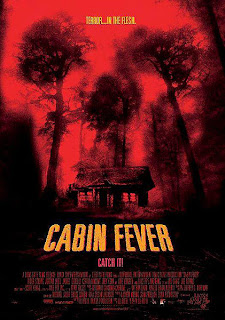"Judas and the Black Messiah" tells an enthralling story, supercharged with dynamite performances
Judas and the Black Messiah (2021)
Set in 1968, Chicago, after the assassinations of both Malcolm X and Martin Luther King Jr., the film starts off with the Judas of the title. He is William O’Neal (Lakeith Stanfield), a petty thief who’s arrested for flashing a fake FBI badge to steal cars (as he says, “a badge is scarier than a gun”). Instead of being thrown in jail, he takes a deal with Agent Roy Mitchell (Jesse Plemons) at the behest of J. Edgar Hoover (Martin Sheen, buried under ghoulish amounts of waxy make-up). O’Neal becomes an FBI informant and infiltrate the Black Panthers, getting close enough to chairman Fred Hampton (Daniel Kaluuya) as a comrade and inform Mitchell of any radical plans. Things get more complicated when O’Neal finds an admiration in Hampton’s activism for the community and the Chicago police begin baiting the Panthers.
“Judas and the Black Messiah” might have been worthwhile anyway, but beyond its political messaging, it’s in Shaka King’s telling of this important story that enthralls and reverberates with a palpable fervor. For one, Daniel Kaluuya is riveting, not only in the cadence of his words during an inflammatory speech but in the inner life he conveys, as Fred Hampton, whose life and career as a civil rights leader would be cut short. The firebrand charisma and the dedication to the people of his movement come right through that it’s no wonder O’Neal begins to feel regrets. It is through Hampton’s individual relationship with poet-turned-speechwriter Debra Johnson, who would become his lover and mother of his only child, that we see a down-to-earth tenderness beyond his steadfastness. As Debra, Dominique Fishback (2020’s “Project Power”) exudes a softness, intelligence, and directness, and her intimate moments with Kaluuya speak volumes.
The film, though, rests more on the guilty conscience of slippery William “Wild Bill” O’Neal, who does possess more compelling shading. In the dynamic role of a man who had to act a part, Lakeith Stanfield brings such a vital presence and a shred of sympathy to the rat who sold out the Black community for his own self-interest. Stanfield’s meeting scenes with Jesse Plemons, subtly menacing as Agent Mitchell, are particularly tense, even when O’Neal merely spots the agent’s face in a Panthers rally. Where O’Neal’s mission ends is the most tragic. The carnage in the film’s final moments—a raid on Hampton’s apartment headquarters in the middle of the night—is staggeringly intense and heartbreaking, all the more for ending on Debra’s face. That “Judas and the Black Messiah” feels resonant now is great for the film but sad in these times. At least it assures that Hampton’s legacy in promoting change will live on.
Grade: B +
Warner Bros. is releasing “Judas the Black Messiah” (126 min.) in theaters and on HBO Max on February 12, 2021.












Comments
Post a Comment